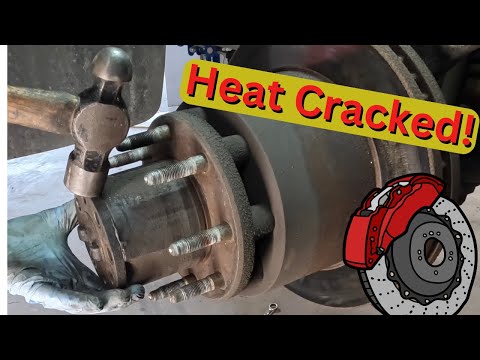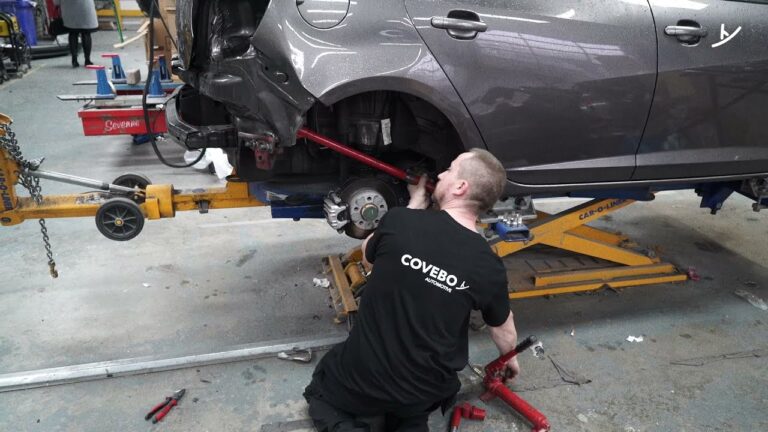Mechanic Job Description & Salary: Get the Details Here!

Mechanic Job Description Template
Mechanic Job Description A mechanic is a skilled professional responsible for inspecting, diagnosing, and repairing various types of vehicles. Their primary role is to ensure that vehicles are in optimal working condition and to address any mechanical issues that may arise. Mechanics work in a variety of settings, including automotive repair shops, dealerships, and fleet maintenance departments. The job description of a mechanic typically includes the following responsibilities: 1. Inspecting and Diagnosing: Mechanics use diagnostic tools and equipment to identify problems in vehicles. They conduct thorough inspections and tests to determine the root cause of mechanical failures. 2. Repairing and Maintaining: Mechanics perform repairs on engines, transmissions, brakes, and other components of vehicles. They replace faulty parts, perform routine maintenance tasks, and ensure that vehicles meet safety standards. 3. Adhering to Safety Standards: Mechanics are required to follow established safety protocols and guidelines to minimize risks in the workplace. They must use protective gear and maintain a clean and organized work environment. 4. Documenting and Reporting: Mechanics maintain detailed records of repairs, including the parts used and the labor involved. They provide accurate reports to customers, supervisors, or insurance companies when necessary. 5. Staying Updated: Mechanics keep up-to-date with the latest advancements in automotive technology and repair techniques. They attend training sessions and workshops to enhance their skills and knowledge. 6. Customer Service: Mechanics interact with customers, providing them with information about repairs, estimated costs, and timelines. They address any concerns or questions the customers may have and strive to ensure customer satisfaction. In summary, a mechanic plays a crucial role in keeping vehicles running smoothly and safely. They possess a strong understanding of automotive systems, are skilled in problem-solving, and are dedicated to delivering high-quality repairs.Mechanic Responsibilities
Mechanic Requirements
- High school diploma or equivalent
- Completion of a vocational or technical training program in automotive technology
- Valid driver’s license
- Strong mechanical aptitude
- Good problem-solving skills
- Ability to use diagnostic tools and equipment
- Knowledge of automotive systems and components
- Experience in repairing and maintaining vehicles
- Ability to work independently and as part of a team
- Good communication skills
- Physical stamina and strength
- Attention to detail
- Ability to follow instructions and safety procedures
How Much Does A Mechanic Make?
Mechanic Salary
| Job Title | Years of Experience | Salary |
|---|---|---|
| Entry-Level Mechanic | 0-2 | $30,000 – $40,000 |
| Experienced Mechanic | 3-5 | $40,000 – $50,000 |
| Senior Mechanic | 6-10 | $50,000 – $60,000 |
| Master Mechanic | 10+ | $60,000 – $80,000 |
A mechanic’s salary can vary depending on their job title and years of experience. Entry-level mechanics with 0-2 years of experience usually earn between $30,000 and $40,000 per year. As mechanics gain more experience, their salary tends to increase. Experienced mechanics with 3-5 years of experience can expect to earn between $40,000 and $50,000 per year. Senior mechanics with 6-10 years of experience earn around $50,000 to $60,000 per year. Master mechanics with 10 or more years of experience can earn between $60,000 and $80,000 per year. It is important to note that these salary ranges can vary based on factors such as location, industry, and level of expertise.
Mechanic Salaries by Country
Top Paying Countries for Mechanics
| Country | Median Salary (per year) |
|---|---|
| Switzerland | $70,000 |
| Australia | $60,000 |
| Germany | $55,000 |
| United States | $50,000 |
| United Kingdom | $45,000 |
Below is a table showcasing the top paying countries for mechanics. The median salaries listed are based on annual income. Mechanics in Switzerland have the highest median salary, earning around $70,000 per year. Australia follows closely behind with a median salary of $60,000, while Germany ranks third with a median salary of $55,000. The United States and the United Kingdom complete the list, offering median salaries of $50,000 and $45,000 respectively. These figures reflect the average earnings of mechanics in these countries and can vary based on factors such as experience, qualifications, and location within each country.
A video on the topic Mechanic
Video Source : Rainman Ray’s RepairsInterview Questions for Mechanic
1. What qualifications do you have as a mechanic?
I have a degree in automotive technology and have completed several certifications in various automotive systems and repairs.
2. How many years of experience do you have as a mechanic?
I have been working as a mechanic for 10 years.
3. What types of vehicles are you experienced in working on?
I have experience working on various types of vehicles including cars, trucks, motorcycles, and even small boats.
4. Can you explain your process for diagnosing and repairing a vehicle?
First, I listen to the customer’s description of the issue and then perform a visual inspection. Next, I use diagnostic tools to identify the problem and make the necessary repairs following industry standards and guidelines.
5. How do you stay up-to-date with the latest automotive technology and advancements?
I regularly attend workshops, seminars, and training programs to keep up with the latest advancements in automotive technology. I also subscribe to industry publications and participate in online forums and discussions.
6. What safety precautions do you take when working on vehicles?
I always wear appropriate safety gear such as gloves, goggles, and protective clothing. I also ensure that the vehicle is properly supported and secured before working on it.
7. Can you give an example of a challenging repair you have successfully completed?
One challenging repair I encountered was fixing a complex electrical issue in a car’s wiring system. After thorough troubleshooting and using specialized diagnostic equipment, I was able to identify the faulty component and repair it.
8. How do you handle customer complaints or disputes?
I listen attentively to the customer’s concerns and ensure that I understand the issue completely. I then address the problem with professionalism and try to find a satisfactory solution that meets the customer’s expectations.
9. How do you prioritize repairs when working on multiple vehicles?
I prioritize repairs based on factors such as the severity of the issue, safety concerns, and the customer’s preferences. I aim to complete repairs in a timely manner while ensuring quality workmanship.
10. Can you describe a time when you went above and beyond to provide excellent customer service?
Once, a customer had a breakdown in a remote location, and I drove out to their location to assist them. I not only repaired their vehicle but also provided them with a temporary solution to get them safely back on the road until they could reach a service center for a permanent fix.






